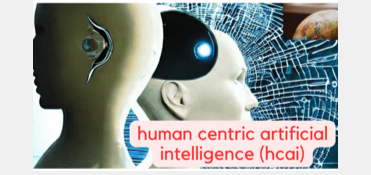Introduction
The galloping progress of AI will bring profound productivity and economic gains for the world. Yet these come at a cost which we must all understand. The real complexities of AI analysis and design arise not from its technological aspects but from its impact on humans and our living environment. These ‘soft’ impacts of AI can stealthily creep up on us and at some point reach an overwhelming situation. The question that begs an answer is whether we wish to accept ‘fait accompli’ of AI or we would like to act now and discover a more stable and acceptable path for AI before an inevitable crisis situation materialises?
When such a crisis happens, its severity can range from wars between nations, terrorism and the use of Autonomous Weapon Systems (AWS) one one end of the spectrum to major changes in the way we live on the other.
From so many disconcerting cases of AI existing today, two have been selected specifically for discussion. Case 1: Last year, on the America got Talent show, the King “ElvisPresley” was shown singing onstage again (more than 45 years after his death) using artificial intelligence. Case 2: About two weeks ago, ChatGPT went out of control and its inferences were totally unintelligible.
Case 1
When people witness Elvis Presley performing today on the stage, there are photographs and videos taken which will find their way into the universe of data on the internet and other platforms. The event which is a recreation of a non-existing person through the use of technology gets recorded today as the truth. With present technology if one records a video, is it possible to classify what she is recording as ‘fictional’? Even if that classification capability were available today, can we trust humans to use it truthfully? How will we differentiate it from videos which were taken when Elvis Presley was alive? Is human life so inconsequential that opinions and preferences of living or dead people do not matter? What happens when an innocent individual is portrayed using AI by her enemy as a murderer which she is not? Is there any way she can defend herself? If AI is given free rein, the answer is no.
It now becomes possible to create entirely fake videos of anyone without their knowledge. This is possible in hologram technology an even more convincing way. This raises serious legal questions and shakes the foundations of our justice systems. The harmonious and largely fair world order is based on our courts, laws and the justice systems which we have been painfully set in place to define acceptable ways of living. We have always had a way of differentiating between the truth and the lie. This is one of the most foundational needs for living in peace and harmony. Yet, the ability to differentiate between the truth and falsehood is being blurred by the rise of AI in unmanaged ways.
These developments dilute the individual free choice of humans. Is it not free-will that defines and make each of us unique and more comfortable in our own skins? Are we willing to give up our right to free-will and actions so easily to technology? Free-will has so far been the fundamental right that helps us differentiate and survive in this world. Surely this topic deserves much more discussion and thought globally before we are all threatened seriously by the rise of technology?
Case 2
Case 2 has been selected to illustrate the response of AI companies to such adverse impacts of AI. It is clear that Open AI has not been fully transparent on the causes of AI spewing out gibberish. They have set it right. So it is clearly something they are aware of. Perhaps it would impact their product confidentiality if they disclose the reasons publicly. Never the less a complete change in the lens through which we view AI systems analysis and design is called for.
Conclusion
The inevitability of the rise in importance of ‘AI forensics’ as an important science can be foreseen. It becomes incumbent on all technology companies to research and develop technological solutions for creation, detection, classification and avoidance mechanisms aimed at supporting and verifying the truth of content. It is for each one of us to find the right balance between harmony, creativity, innovation and commercial profits for AI. This should happen in our every day work and through open discussions for upholding the truth and ensuring that technological progress happens only on the back of truth. Information technology professionals are in a unique position to contribute positively and immensely to prevent this upheaval from disrupting our lives.
Reference
- Chat GPT just went rogue
https://thredmedia.medium.com/chatgpt-just-went-rogue-and-we-dont-know-why-58ccf1ab43e4
Follow link
